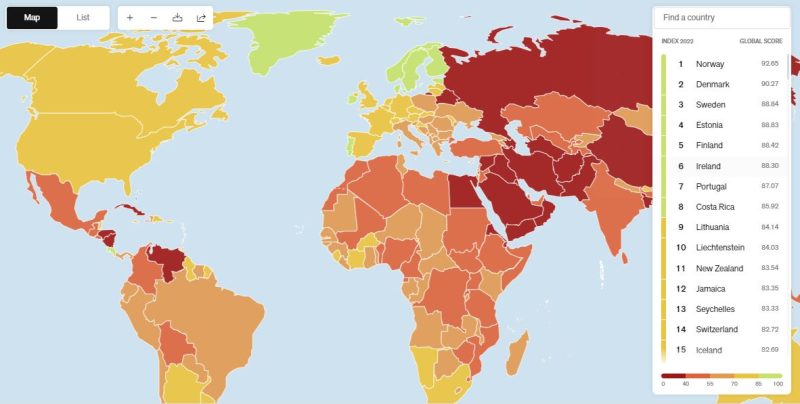
 An impressive number of 28 countries teamed up with Europol to deliver a major blow to organised crime groups involved in trafficking in human beings across the European Union and beyond. During the operational activities of the EU-wide Joint Action Day (JAD) namedCiconia Alba, one part of the intelligence-led police actions and controls focussed explicitly on sexual exploitation and child trafficking. During the span of the action week co-ordinated by Europol and under the lead of Austria, 11 161 locations (red-light district areas, brothels, private flats, massage parlours, airports and reception centres) were controlled, alongside 43 405 persons were checked, and549 victims/potential victims1 identified. In addition, police controls checked 5 126 vehicles and 35 848 ID documents. Data gathered during the operations led to the launch of 102 new investigations in order to identify further suspects and victims linked to human trafficking cases across the EU. The JAD took place between 10 and 16 October. Europol Director Rob Wainwright said: “Trafficking in human beings is a global problem and a thriving criminal industry that affects the lives of millions of children, women and men around the world who are trapped in a type of modern day slavery. The outstanding collaboration between 28 countries during the Joint Action Day delivered major results. By working together, leveraging our power and increasing the operational priority given to investigating human trafficking, the police community and civil society can succeed in eradicating modern slavery.” The nationality of the victims of human trafficking identified, and the suspects arrested during the JAD Ciconia Alba, confirm the prominence of trafficking network originating from Nigeria, Asia and Eastern-Europe as being the most active in the EU. Fourteen underage victims were reported. Overall fifty-two countries and four international organisations were involved in the JAD Ciconia Alba, and joined Europol in its fight to disrupt the most dangerous criminal networks currently active. During the JAD investigators put an emphasis on cases related to facilitated illegal immigration, trafficking in human beings, drug trafficking (cocaine, heroin and synthetic drugs) and cybercrime (payment card fraud – Global Airport Action Day). Law enforcement officers in the field were supported 24/7 from an operational coordination centre located at Europol’s headquarters in The Hague. Here, Europol officers, liaison officers and national experts from the participating countries, working with specialists from other international partners, offered fast and smooth information exchange using Europol’s secure channels, and constantly analysed intelligence gathered. In the crime area of trafficking in human beings, in addition to the national delegates present at Europol’s operation coordination centre, an exchange of law enforcement officers from the countries of origin and the countries of destination of the trafficked human beings was paramount for the success of the operation.
An impressive number of 28 countries teamed up with Europol to deliver a major blow to organised crime groups involved in trafficking in human beings across the European Union and beyond. During the operational activities of the EU-wide Joint Action Day (JAD) namedCiconia Alba, one part of the intelligence-led police actions and controls focussed explicitly on sexual exploitation and child trafficking. During the span of the action week co-ordinated by Europol and under the lead of Austria, 11 161 locations (red-light district areas, brothels, private flats, massage parlours, airports and reception centres) were controlled, alongside 43 405 persons were checked, and549 victims/potential victims1 identified. In addition, police controls checked 5 126 vehicles and 35 848 ID documents. Data gathered during the operations led to the launch of 102 new investigations in order to identify further suspects and victims linked to human trafficking cases across the EU. The JAD took place between 10 and 16 October. Europol Director Rob Wainwright said: “Trafficking in human beings is a global problem and a thriving criminal industry that affects the lives of millions of children, women and men around the world who are trapped in a type of modern day slavery. The outstanding collaboration between 28 countries during the Joint Action Day delivered major results. By working together, leveraging our power and increasing the operational priority given to investigating human trafficking, the police community and civil society can succeed in eradicating modern slavery.” The nationality of the victims of human trafficking identified, and the suspects arrested during the JAD Ciconia Alba, confirm the prominence of trafficking network originating from Nigeria, Asia and Eastern-Europe as being the most active in the EU. Fourteen underage victims were reported. Overall fifty-two countries and four international organisations were involved in the JAD Ciconia Alba, and joined Europol in its fight to disrupt the most dangerous criminal networks currently active. During the JAD investigators put an emphasis on cases related to facilitated illegal immigration, trafficking in human beings, drug trafficking (cocaine, heroin and synthetic drugs) and cybercrime (payment card fraud – Global Airport Action Day). Law enforcement officers in the field were supported 24/7 from an operational coordination centre located at Europol’s headquarters in The Hague. Here, Europol officers, liaison officers and national experts from the participating countries, working with specialists from other international partners, offered fast and smooth information exchange using Europol’s secure channels, and constantly analysed intelligence gathered. In the crime area of trafficking in human beings, in addition to the national delegates present at Europol’s operation coordination centre, an exchange of law enforcement officers from the countries of origin and the countries of destination of the trafficked human beings was paramount for the success of the operation.
1 Victim identification is a very complex procedure, which can differ significantly from country to country. In some occasions victims are flagged by police, but afterwards deny being under exploitation. However this does not mean that further investigations will not take place.





